How much about violence against women has actually changed since Sarah Everard's murder?
One year on from Sarah Everard's tragic murder, we look at whether we are doing enough to tackle violence against women and girls...

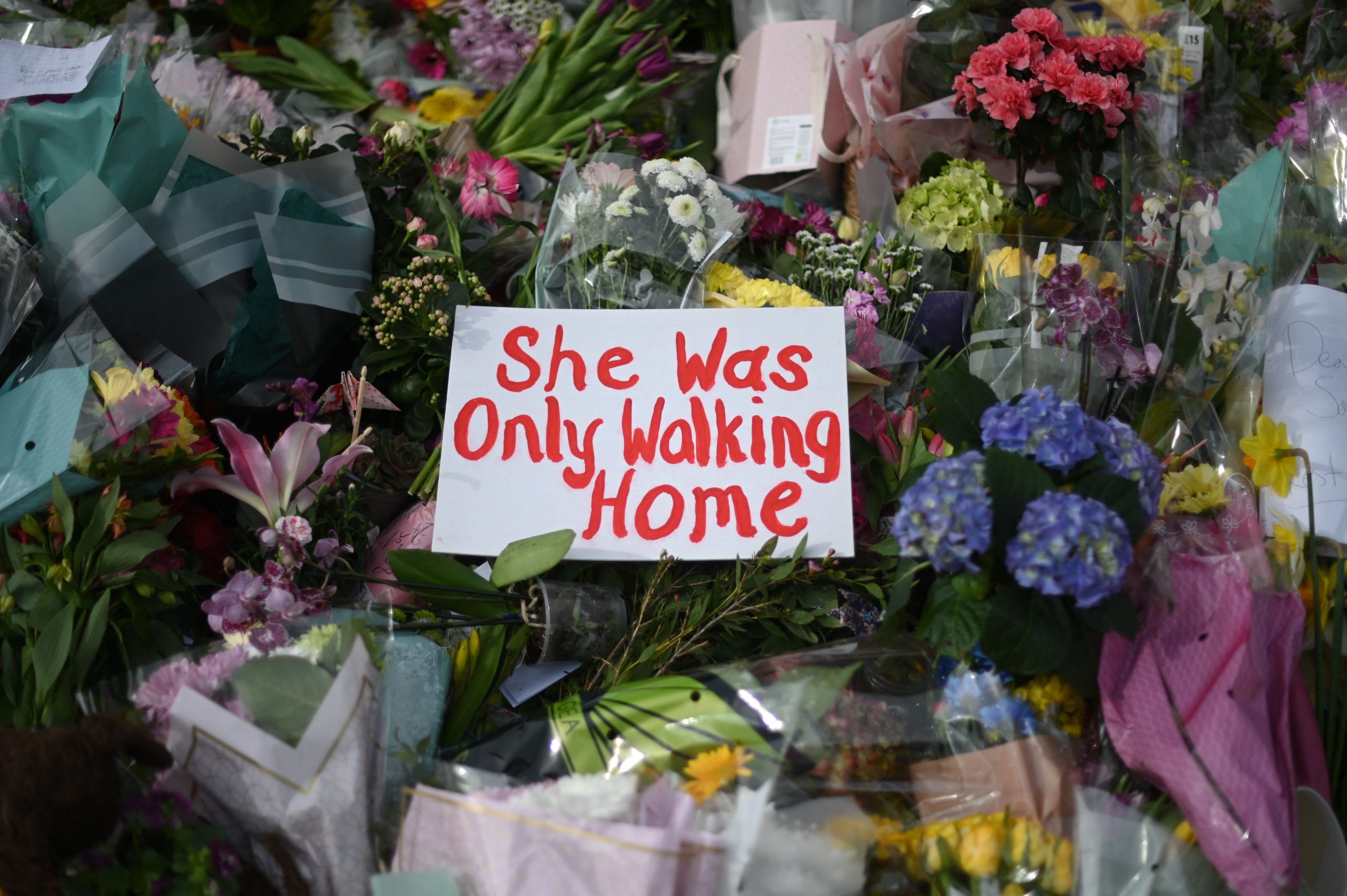
Celebrity news, beauty, fashion advice, and fascinating features, delivered straight to your inbox!
You are now subscribed
Your newsletter sign-up was successful
Sarah Everard went missing on 3 March 2021 in South London, walking from a friend's house in Clapham to her home in Brixton.
Her remains were found in a Kent woodland on March 10, with a member of the Metropolitan police charged with her kidnap, rape and murder.
Sarah's tragic killing prompted long overdue conversations around violence against women and it seemed like this case would be a turning point in street safety and the ways that we tackle femicide. But one year after Sarah's murder, are we doing enough to tackle violence against women and girls?
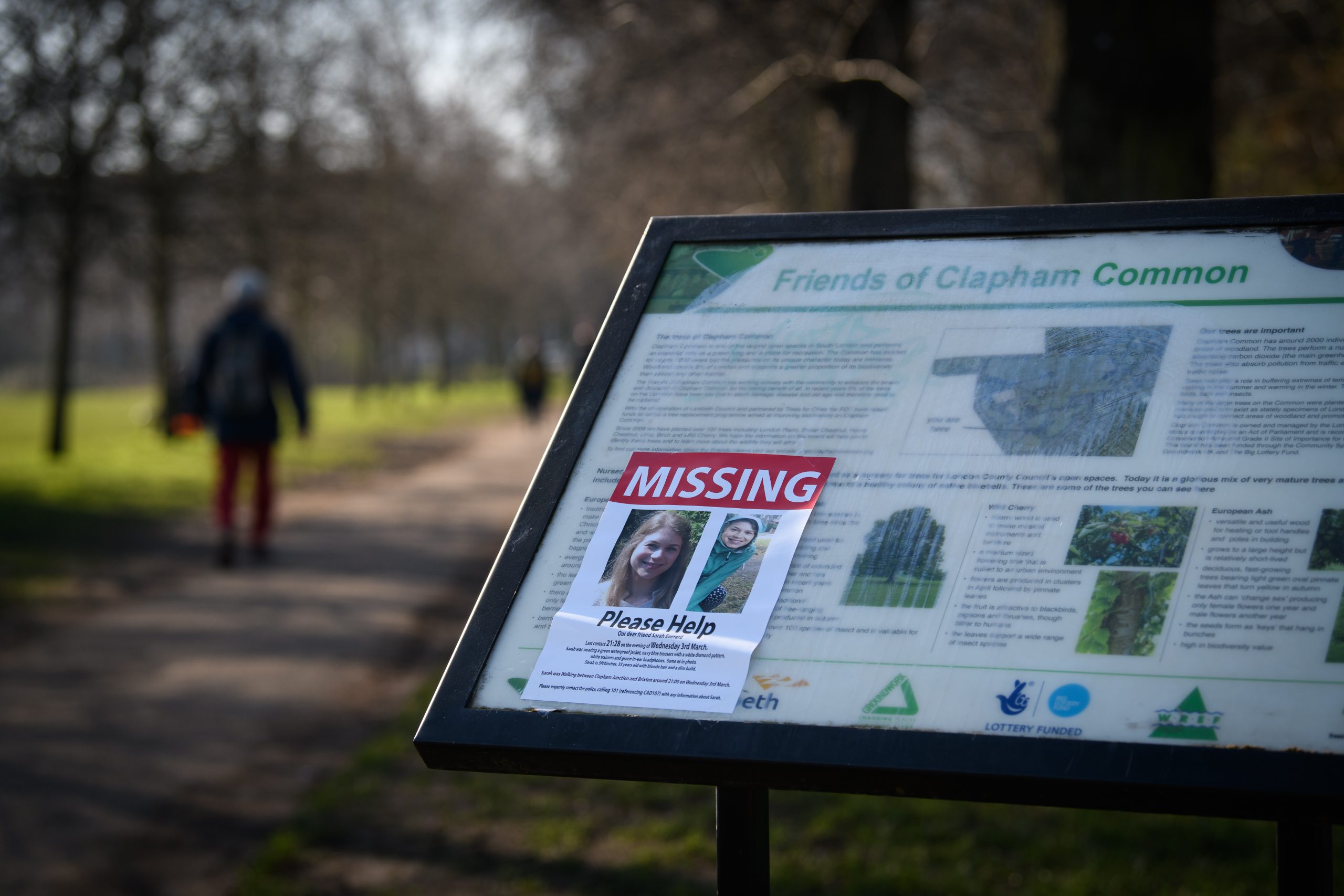
"Awareness of violence against women and girls (VAGW) has certainly increased," explained Rebecca Gill, Executive Director of Rosa, the UK’s leading grant-making charity for women’s organisations. "89% of specialist women’s organisations we surveyed for a recent piece of research stated they thought there’d been a noticeable shift in this. However, the fact is women are still experiencing coercive control, economic and financial abuse, verbal and physical assault in public spaces, sexual harassment in schools, workplaces and social locations and of course violence in the home from family members. Too many women are still losing their lives at the hands of violent and abusive men."
At least 139 women died as a result of gendered violence in 2021, and while public awareness around VAWG has increased one year on from Sarah Everard's murder, little progress actually seems to have been made.
This, Rebecca Gill told Marie Claire UK is because "'awareness' is not the same as 'engagement'".
"People are more aware of the issue, but they may not be engaging in the multiple ways that women and girls experience violence and abuse," she explained. "There is a focus on ‘stranger danger’, because that makes headlines, but the everyday verbal and physical abuse which women and girls experience, continues in public spaces and in the home. There seem to be more men challenging other men’s behaviour, but that might take a generation to have the fundamental shift we need to see. Ultimately violence and abuse are about power through fear and intimidation – that takes a long time to unravel."
Celebrity news, beauty, fashion advice, and fascinating features, delivered straight to your inbox!
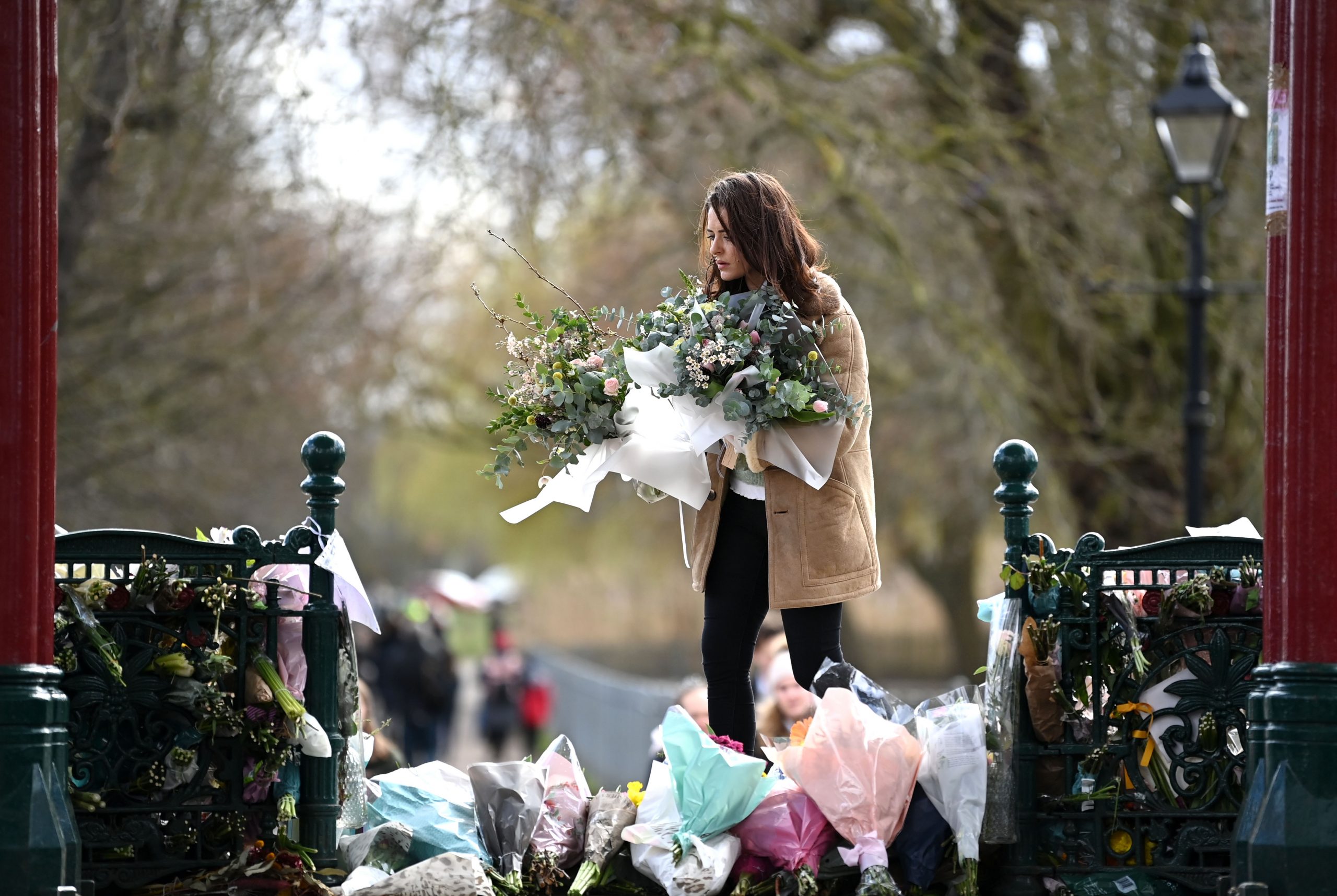
A key way in which women and girls are still being failed is a lack of funding, something that Rebecca Hitchen from the End Violence Against Women Coalition spoke out about, following the government's autumn budget announcement.
“In a year when we’ve seen women take to the streets in anger and distress, and wide cross-sections of society urging action against VAWG, we have yet to see government follow through on its promises with the spending needed to create any kind of meaningful change," she explained.
"The absence of investment in prevention work speaks volumes about the government’s priorities – we’re facing a crisis of sexual violence in schools, but seeing an enormous gap in funding work on consent, relationships and sex education and a whole school approach to ending VAWG.
"This year, we’ve had announcement after announcement of superficial, headline-grabbing measures such as increased CCTV and street lighting, but little commitment to the difficult but necessary work to challenge the public attitudes that perpetuate and normalise VAWG. Violence against women and girls isn’t inevitable, but it will require bold and ambitious spending if we are to end it.”
It is because of a lack of such funding that Rosa was set up in 2008, born out of a need to support the women and girls' sector.
"Rosa was set up by a group of women who were concerned by the low levels of funding going into the women and girls’ sector, and we remain the only UK funder dedicated to supporting this sector," explained Rebecca Gill. "Fourteen years on, it is still a challenge to access funding and ensure it reaches the range of organisations led by women and girls across the UK delivering vital services and advocacy work. The current trend is for funding to be funnelled to large, gender-neutral services that cannot provide the specialist support that community based and frontline women’s organisations provide."
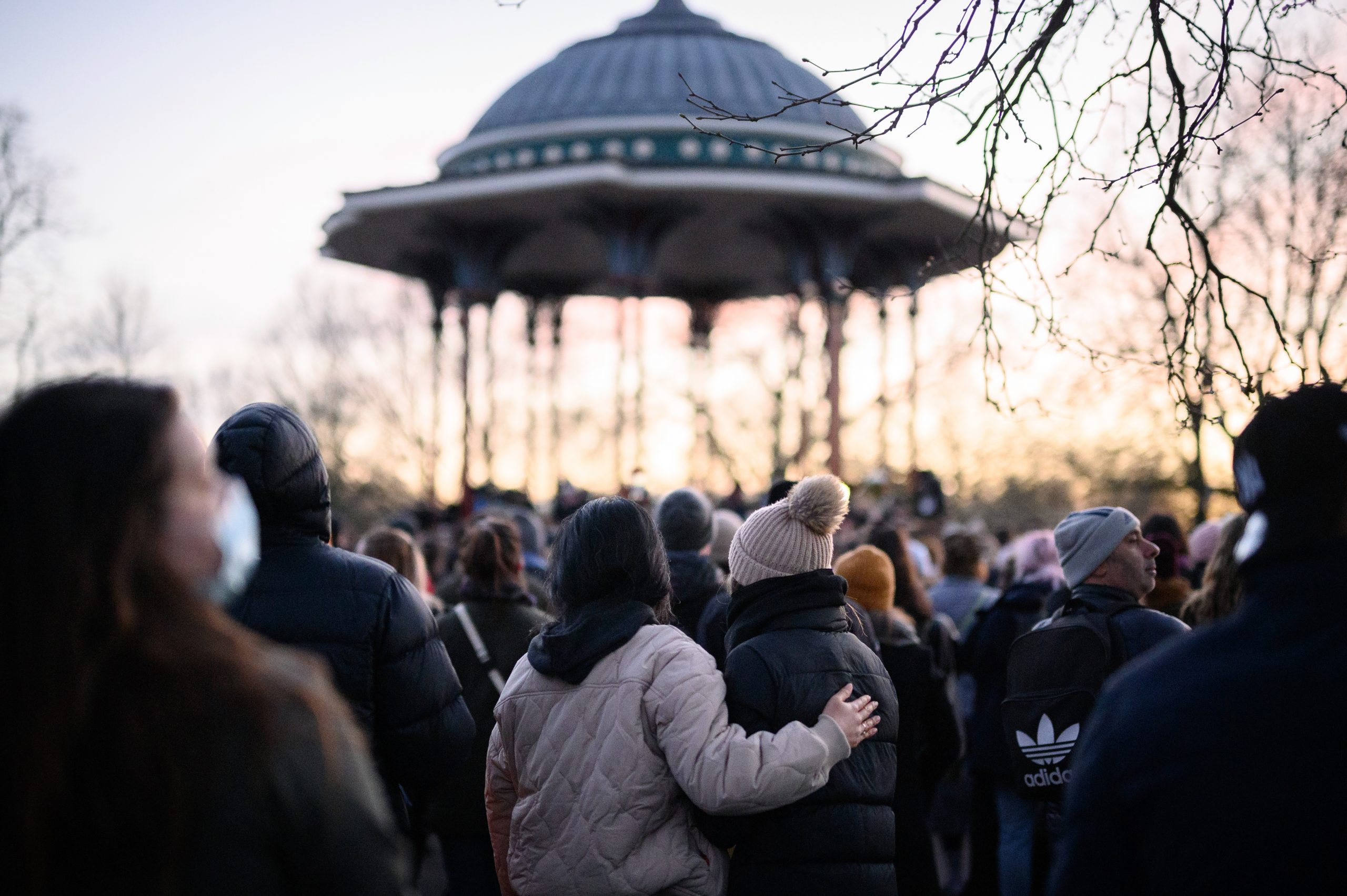
What further action do we therefore need to tackle violence against women and girls going forwards?
According to the Rosa team's research, the majority of women's organisations identified three critical factors in creating positive change around VAWG:
- Better/more educational programmes in schools, colleges and Universities
- Greater change in media and wider cultural representations of women and girls which harm or objectify
- Greater economic equality for women and girls
"From Rosa’s perspective, greater access to long-term funding for the women’s organisations working on the frontline of VAWG would make a hugely positive difference," Rebecca Gill explained. "As would giving them a greater voice as their insights and knowledge could provide new ideas for tackling male violence and help inform the debate around how we can all work together to end it."
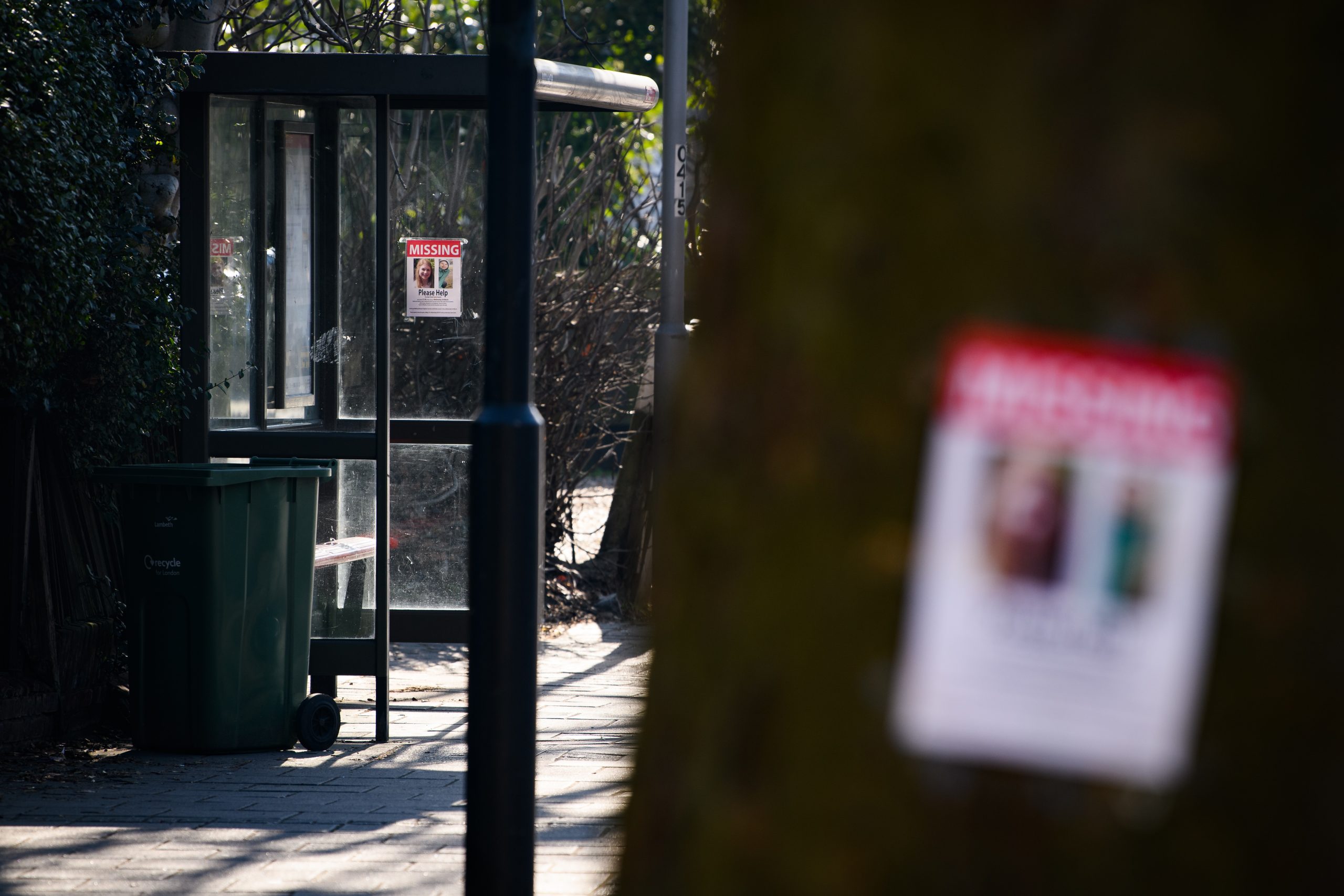
Rosa is launching its Stand With Us fund this month to raise vital grants for women’s organisations supporting women and girls whose lives have been devastated by male violence.
"Rosa has always funded specialist organisations working to support women and girls affected by male violence and abuse," Rebecca Gill explained about the campaign. "Stand With Us was started thanks to the generosity of individuals who donated to Reclaim These Streets – a group of women activists who came together to mark the kidnap, rape and murder of Sarah Everard by a serving police officer.
"All of Rosa’s grant-making work is done in collaboration with women’s and girls’ organisations – we are developing the Stand With Us fund in partnership with five organisations working to end male violence against women and girls and with Jamie Klingler and Ludo Orlando from Reclaim These Streets. They are helping us determine how the fund will be spent. We aim to open the funds for applications after Easter."
Let's use the anniversary of Sarah Everard's tragic killing to call for more action to tackle violence against women and girls - action that is long overdue.
Visit Rosa to find out more about its grant-making work and to get involved with the Stand With Us fund.

Jenny Proudfoot is an award-winning journalist, specialising in lifestyle, culture, entertainment, international development and politics. After working at Marie Claire UK for seven years - rising from intern to Features Editor - she is now a freelance contributor to the News and Features section.
In 2021, Jenny was named as a winner on the PPA's '30 under 30' list, and was also listed as a rising star in journalism.